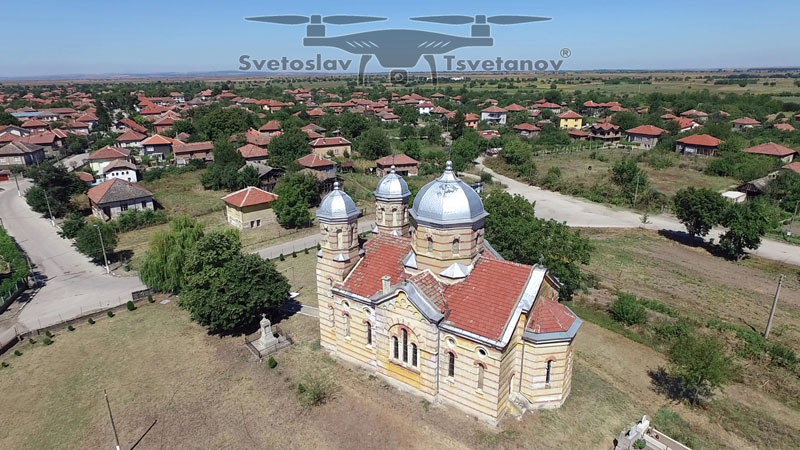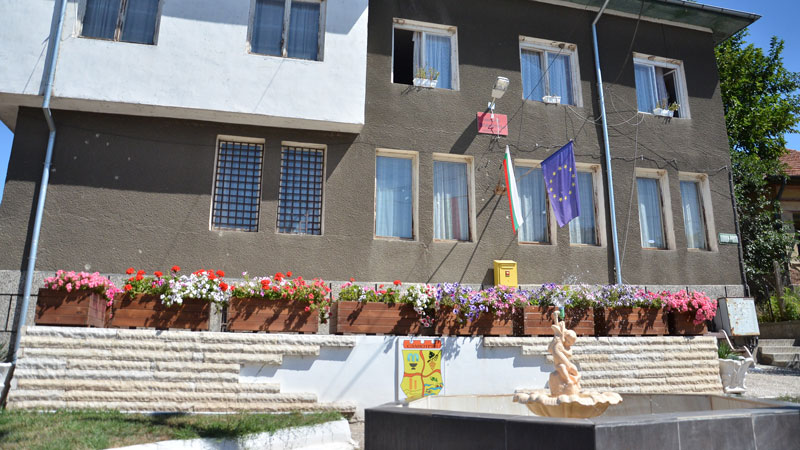Located about 16 kilometers from Vidin, on the banks of the Danube River, the village of Slanotran has a population of about 500 people. The winters here are very severe and the summers are scorching hot. It is this village, unknown even to many Bulgarians, that turns out to be yet another stop in the life of the Italian Antonio Panarello, as he assures - purely by chance.
Today's 67-year-old Antonio left his hometown of Messina in Sicily early, and after studying to be an accountant, he earned his living as a lieutenant colonel in the Economic Police in the Italian capital for decades. But on a "day of enlightenment" (when his four children were already grown up) he decided that he no longer wanted to work for the state and said to himself "Basta! I want my freedom back!". He surrendered to his new-found freedom by returning to his former passion - motorcycles. Thus, he started travelling around Europe on two wheels. And so one day he decided to find a new home - in Bulgaria.
The decision came supposedly by accident, but we should mention that Antonio had visited Bulgaria as early as the 1970s and 1980s via the old Calafat-Vidin ferry, and maybe it was then that the seed of curiosity towards this region was sown. And so, in the not-so-distant 2015, the Italian lived in an apartment in Vidin, but for a short time - from there he ended up in the village of Slanotran, where he can easily indulge in his hobby - motorcycles, and he already has as many as five of these!

"The problem was that I needed more space, and I didn't have any in the apartment. Slanotran was just a coincidence. A friend really insisted that I go see Slanotran. He said to me: "Come see this village, come!". So I went along with some other people. And eventually, other people decided to take this property, which wasn't what you see right now. It was a jungle, to say the least. Almost everything you see now is made by me. This is one of my numerous hobbies. Because among everything I worked as a boy, there was also this - that's where my passion for crafting comes from," Antonio shared in an interview with BNR’s regional station in Vidin.
Surprisingly, this part of North-West Bulgaria predisposes him to feel at home - the local people treated him nicely, the nearby town of Vidin, where he goes in the evening for a drink and meetings with friends, reminds him of his hometown of Messina, and Italy is not so far away. In the village itself, he communicates freely with many residents in his native language, since they went to work in Italy. In fact, as Antonio points out, this - that many of the inhabitants of small settlements in our country are forced to seek a living abroad - is one of the scourges for Bulgaria:

"The problem is that the villages here in Bulgaria are abandoned. Therefore, the time I spend in the village is nice when I have something to do. If not, I take my bike or car, or get on a plane and go somewhere. Of course, in winter it is pleasant in the village. At least for me. The first winter I spent here was in 2016 when it was minus 30 degrees and there was a lot of snow, it was nice."
Other problems faced by Antonio Panarello himself are the lack of cultural life even in regional cities such as Vidin, the poor transport infrastructure and the language barrier:
"When you go to an administrative office and want to ask about a document or simply need information, the people do not speak English, and the documents are written in Bulgarian. I have registered vehicles here and I have Bulgarian documents, and in the traffic police, for example, there are very few people at the counter who are able to pay attention to a foreigner who has many questions. If Bulgaria is part of the European Union, wants to complete this cycle and become fully part of Europe, it must also think about the personnel in its administrative services. This is a very important issue," Antonio emphasizes.

But the Italian prefers to focus on the positive side of life and enjoy the good that it offers him. Problems, albeit of a different nature, are everywhere. Therefore, when asked if he is thinking of leaving Slanotran, he answers firmly: "No! As long as I can or until there are more serious reasons, really important ones, I think I will stay here".
Read also:
Photos: BNR Vidin, Svetoslav Tsvetanov
Text: Miglena Ivanova (based on an interview by Sonia Valerieva, BNR-Vidin)
Editing by E. Karkalanova
Translated and published by Rositsa Petkova
Nickolai Kolarov is a Bulgarian cellist who has been building an academic career and giving concerts in Minnesota, the US for almost 30 years. His life overseas started with a master’s degree in string instruments in Kansas City. He left in 1995 to..
Bulgarian football legend Hristo Stoichkov has accepted an invitation from FIFA President Gianni Infantino to join his team . "It is a great honor for me to accept Gianni Infantino’s invitation to work for FIFA. I will represent both myself and..
He says he has not felt like a foreigner in Bulgaria for a long time. This is his home, he has learnt Bulgarian and like most of our compatriots he is interested in the political situation in the country. But his greatest passion, what fills his days with..

+359 2 9336 661
